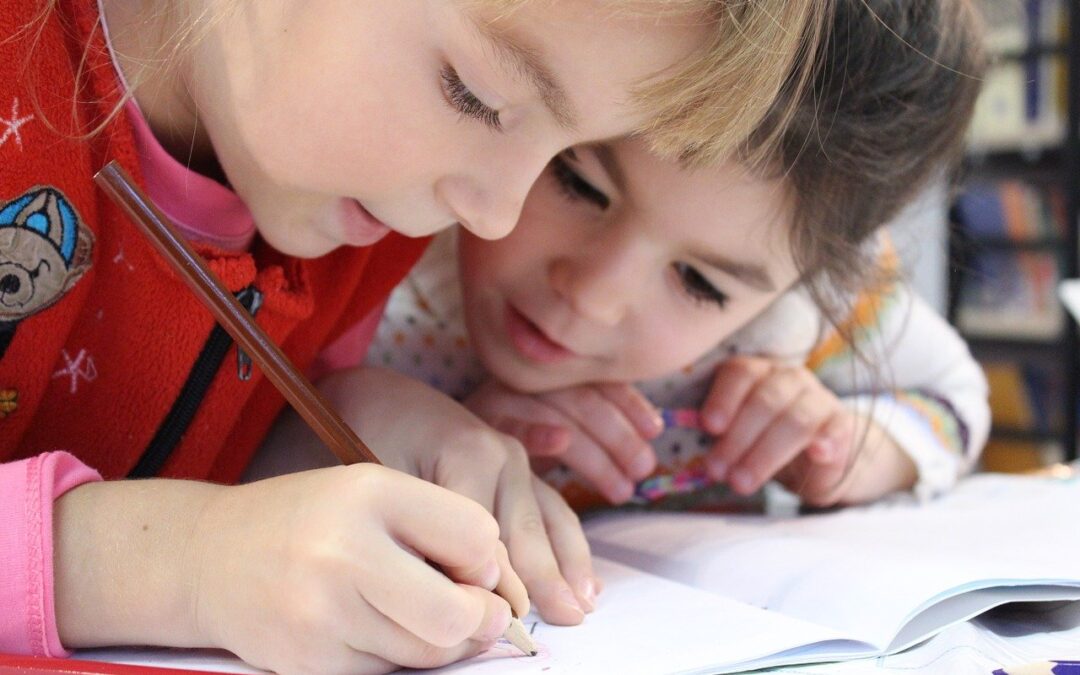Everything changed for school-kids when the COVID-19 pandemic caused mass closures of schools around the world. New routines had to be forged by both parents and children as they adjusted to colossal deviations from their normal lives. Home schooling and abandoning extra-curricular social activities became the new normal, and kids have grown accustomed to this lifestyle. Now children’s lives are about to be disordered once more, as families face this fall’s return to in-person schooling and normal activities.
Psychologists agree that parents should focus extra time on preparing their children for the imminent return to the real world classroom. This will ease the stress and soothe the nerves of any children who might be wary of the disruption to their home-school routines.
Reintroduce the “Old School” Ways
Many kids have grown used to the comforts of staying in their own homes and remaining close to their families throughout the pandemic; some kids might even prefer schooling from home. Your children might have only met certain teachers and classmates over video. Some of them might be so young that they don’t remember much of what the physical classroom was actually like.
Gradually reintroduce the habits your child used to practice (or will need to practice for the first time, if they have turned school-age during the pandemic) a few weeks before school actually begins. This can include: waking up earlier, dressing differently, packing a lunch and backpack, driving to the school, walking to the bus stop, or even going into the school before it opens to check out the child’s classrooms, the hallways, the bathrooms etc. Checking out the premises will be helpful for particularly anxious children. You can reach out to their teachers to get class lists, schedules or information on what to expect from the new school year.
Focus on the Positives, Prepare for the Negatives
Encourage your child to think about what excites them about returning to school. Did they love spending time with friends? Gym class? Art class? After school sports? A certain teacher or lunchtime monitor?
If there’s anything they are nervous about, spend time discussing potential strategies to cope with these possible occurrences. Maybe they didn’t get along with certain kids or felt bullied, excluded or self-conscious. Maybe they dislike sitting still for long periods of time or feel frustrated by the curriculum.
There’s not going to be a solution for every problem, but if you can get a game plan, however minor, it can go a long way with preparing your child. What’s most helpful is that your child feels heard, and feels their fears are validated. Set aside time after school to listen to how their day went. Touch base with their teachers about their progress. Watch for signs they aren’t handling the return to school very well and may need additional support at home or from a professional counselor. Signs include: irritability, tantrums/outbursts, lack of interest in favorite activities, trouble sleeping/nightmares, decline in grades, fear of school etc.
Manage Everyone’s Expectations
Preparation is the key to reducing stress, but you can’t be prepared for everything. The beginning of the school year will surely bring up challenges that weren’t foreseen. Remind your child (and yourself) that they don’t need to have a perfect transition back to real world schooling. Be gentle with yourself and your child if emotions run high or patience runs thin. Remember that your child looks up to you and takes their cue from you to know if everything is okay. As Julia Martin Burch, PhD, writes in an article on Magination Press Family, “You can do much to soothe their nerves by showing and expressing your confidence in their ability to handle the situation. Make sure you are taking care of your own emotions and charging your own battery so that you can be available to them through this transition.”
Practice Positive Thinking
Stress and fear can bring about negative thoughts, which might get stuck in their minds and become overwhelming for your children. Redirecting those negative thoughts into positive ones can be helpful for children to stay calm. Burch advises, It can be helpful to ask what they would say to a scared friend to help them feel better. You can also discuss brave characters in books or movies and think about what they might say in a tough situation.
Burch advises practising helpful phrases. Below are some examples:
I’m brave like Captain America.
I can get through tough things, because I’m tough too.
Things might be hard now but they always get better later.
For some kids, the idea of returning to school might cause more stress than excitement. Kids with anxious temperaments, social anxiety or mental health issues might be afraid to leave the comforts of their homes to journey into the unknown of the school system. All that you and your child can do is stay positive, utilize open communication, and support each other through another life adjustment. If you or your child is struggling to cope with the stress of returning to school, reach out to us at Family & Child Development and schedule a meeting with one of our counselors. We offer both in-person and telehealth appointments.

